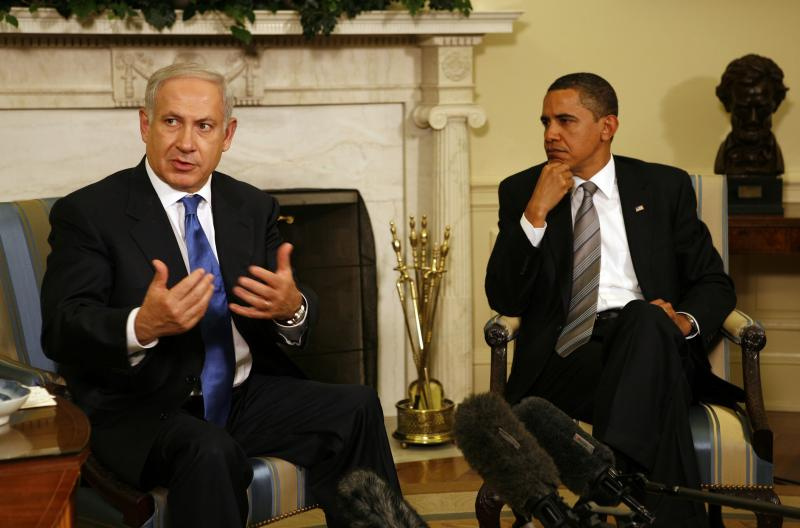Israel’s Isolation in its Position on Iran

On the other hand, considering media positions and pulses as well as ongoing negotiations, the West has entered a new phase due to their understanding of Iran’s enrichment capability. Israel is trying hard to prevent the new atmosphere in dialogue and desires a return to conditions as they were before the Istanbul talks.
Israel still endeavors to introduce itself as the Sword of Damocles or the hidden sword in negotiations between Iran and the P5+1. This has led to various reactions. Today, even the US administration itself does not believe in a harsh stance, and seeks new programs to create new conditions.
That is why today a gradual change in the positions of many member countries of the P5+1 is being formed. Even recently, we witnessed new voices coming out of Chatham House. It seems that the British government is studying new options in order to conform its view to new conditions and considers different opportunities, similar to the new wave in Elysee Palace, which is pursuing opening a dialogue. It can be said that the European countries that followed harsh stances against Iran are reviewing their views regarding this issue, but they are not yet mature enough and this necessitates both sides to wisely pursue equal opportunities.
At the same time, there have been different statements and declarations made. In the last statement of the European Union, the issue of suspension of enrichment was again mentioned. But this statement must be evaluated within the framework of the trip made by Yaakov Amidror, the Israeli National Security Advisor, to Europe. If the West intends to enjoy Tehran’s cooperation, it should move with caution so that Iran’s public opinion will not be damaged.
The people in Occupied Palestine are not in a position to tolerate new difficult conditions and cannot prepare themselves for big military threats. Today we see how people protest against economic problems and pour into the streets voicing their dissatisfaction. On the other hand, Israel’s position in the region is weakened and it cannot continue its previous pivotal role for many of its associates. Therefore, it can be said that Israel’s voice with regard to a hardware solution to Iran’s nuclear issue is not from a position of power, but rather from passivity and weakness. The Israelis will try to add value to their positions through showing off and getting themselves noticed once again.
Today, even Israel's efforts to reactivate the AIPAC lobby in Congress, or even against Mr. Obama, are not as severe as before. In a comparative view, one can understand that the Israeli government is more active in this regard than Jewish lobbies in the U.S. or Europe. The Netanyahu government's position is more the position of a shaky government than an international position of Jewish society. Since the Netanyahu government’s positions lack an international base, framework and acceptance, they can rapidly change and consequently the government will try to adjust its positions over time.
However, it should be stressed that any adventurism on the part of the Israeli regime will face a harsh reaction and any risk in this regard will not be without any cost. The reaction to such an action will be a comprehensive response rather than a simple one. The international community should make the Israeli regime understand that such an action is the beginning of a catastrophe for it.
According to officials in London, South Korea and Japan have asked the European Union to allow them, after the beginning of implementation of sanctions against the Iranian oil industry on July 1st, to use European insurance companies to transport imported oil products. This sends the specific message that the move for constructive interaction and gradually reversing confrontation has become implementable. At the same time, Britain has emphasized that the implementation of sanctions against Iranian oil will increase oil prices. In this way, Britain is trying to convince other E.U. members to delay implementation of these sanctions for another six months. Israel still does not want to understand that both sides are after the reduction of threats and changing the path towards normalizing the situation. If Israel will understand the situation, it would be better for it not to waste its energy. If it scans its memory, it will understand that the U.S. has so far given the opportunity to buyers of Iranian oil to reduce their imports and hence exclude themselves from U.S. sanctions. U.S. Secretary of State Hillary Clinton said some time ago that since 11 countries have substantially reduced their imports of Iranian oil, they will not be subjected to sanctions adopted by the U.S. Congress.
After its efforts during the last few days, Israel should pay attention to German positions regarding the country's hope for achievement of a comprehensive agreement in negotiations between Iran and the IAEA. According to Mr. Martin Schaefer, from the point of view of the German government, the importance of these negotiations is to have tangible success and to prepare the grounds for continuation of constructive talks started during the Istanbul talks, with a view towards achieving desired results in future rounds of negotiations.

